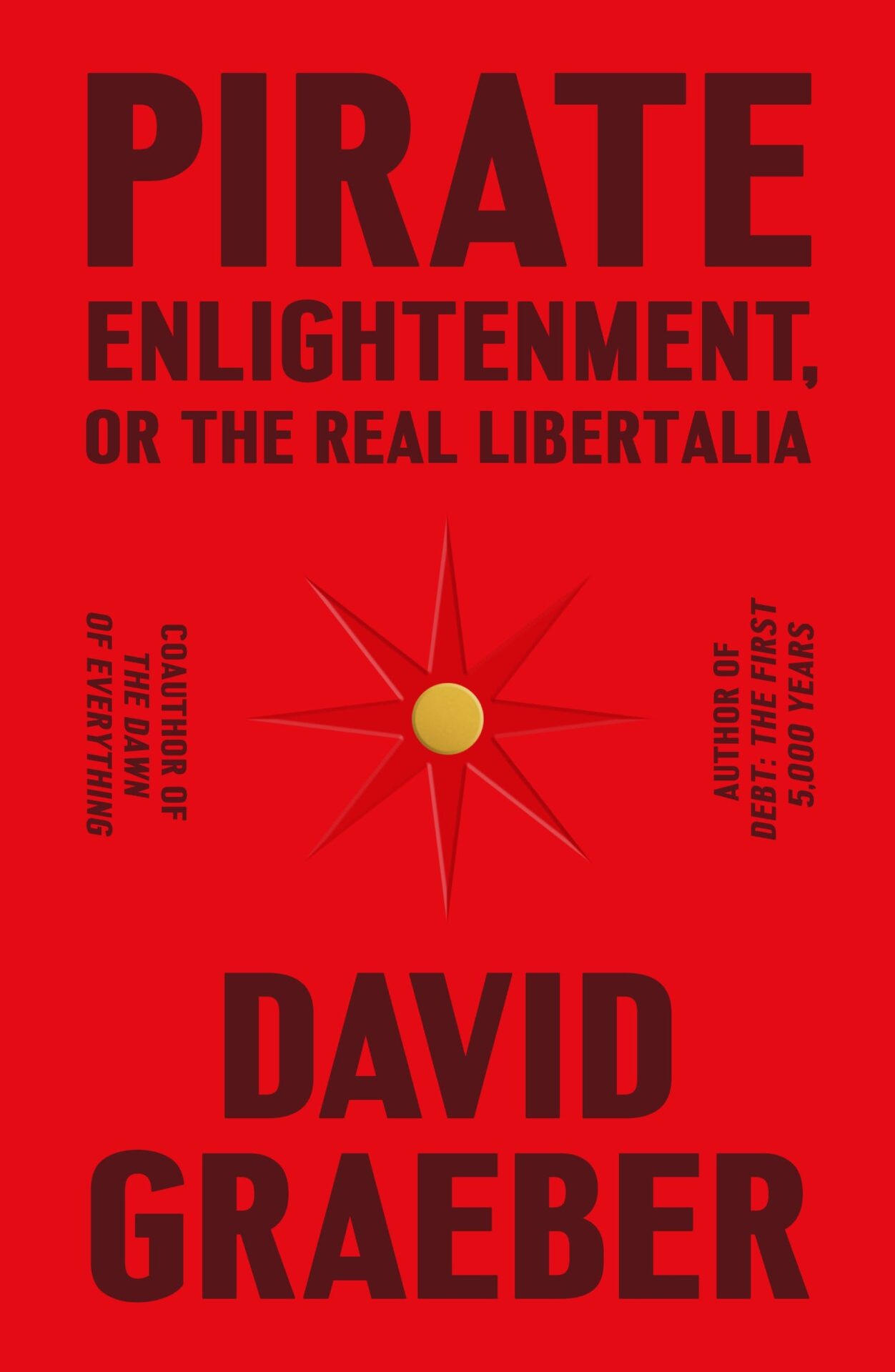Book Review: Pirate Enlightenment, or the Real Libertalia
Flaschenpost
This is a review by Lena Tama, published in the Flaschenpost in 2023

Pirates’ golden age from the 17th to 18th century is mired in romanticization and fantasy about how they fought against the European regime to seek justice or their barbaric plundering into villages to snatch golds and women to their ships. However, there lies hidden treasures beyond those stories, as the late David Graeber attempts to uncover the truth beyond the sea. Pirate Enlightenment, or the Real Libertalia discusses a thorough analysis into the origin of pirates, how Madagascar became the central point for warfares and politics, and how the son of an English pirate married into the local society to create a mighty army and an egalitarian society where pirates and Malagasy enjoyed the life of equality, peace, and stability for over thirty years.
David Graeber | CC BY-NC-SA 2.0 Francesca Leonardi
Pirate Enlightenment, or the Real Libertalia is what I want to believe to be David Graeber’s parting gift after his passing in 2020 as it fits well into his catalog of amazing experiences as an anthropologist. Dissecting the history of pirates is indeed as hard as Graeber stated in this book considering how weak most of the historical sources are, and so he enriches the image of pirates in the way I didn’t really know until now, using his vast knowledge about Madagascar to create a narrative in which the Malagasy society turned into a complex string of political warfares over countless betrayals and trades during the 17th and 18th centuries.
Indeed, pirates were the stuff of legend during those time periods, what with how people imagined them as either a group of criminals or rebels born from mutiny against the European regime who were known to practice cruelty both on board and on land. Historians and modern media romanticize them, turning them into fantasy stories of how they turned into proto-revolutionists as Graeber claims in the book, and yet life was still just as hard for pirates who would eventually embrace hell and be disgraced upon. Considering how much the people on the land despised them, it makes sense why the term “Booty” was a thing; it was very difficult to trade pirates’ plunder for money in towns or they would face punishments by the officials, so they had to split them up and hide them somewhere else. In addition, it also makes sense why pirates were depicted as barbarians because even the official regime practiced cruelty which became the standards for that time period.
Furthermore, pirates would eventually settle down and create an egalitarian society with the Malagasy from the 17th to 18th century. Perhaps the highlight of this book for me is how Graeber manages to challenge the identity of the legendary pirate John Plantain known to many historians and the claims surrounding him, eventually concluding that his legend was simply based around notes from an India Company agent who couldn’t even speak or understand Malagasy language in order to rise the fame of a con man using achievements that didn’t really exist. Based on this profile, the narrative then continues with Ratsimilaho or “Mulatto Tom,” a pirate of significance who Graeber concludes to be the true king of the northeast coast and ruler of the Betsimisaraka army, from which the Malagasy would enjoy a life of egalitarianism where peace, stability and respect were highly regarded among pirates who married into the local society for over thirty years, unlike anything they experienced in Europe at that time.
 That said, there are things that I thought this book could’ve done better. For one, Pirate Enlightenment, or the Real Libertalia is not as long as I’d like. Although one might argue that this has been Graeber’s style when writing books, in this case I feel like this book is still unfinished and that more could’ve been added. This may have something to do with how Graeber states at the beginning of the book that the historical sources are scarce and flimsy, to the point where it might as well be a fictive interpretation of the pirates. Not to mention, Graeber himself states several times that there really is no real way to record the time period and that while there is usually only one source about one particular pirate, oftentimes there may be two accounts of the same pirate and both sources contradict each other. However, I don’t think it’s easy to dismiss the amount of effort Graeber puts into the details, how much researches being put to dissect the society of a region with very few historical records thanks to his experiences with Madagascar, and the thorough analysis into an egalitarian society that managed to uphold racial and gender equality, prosperity, as well as their own strength to drive back the pirates who might have potentially violated their privileges.
That said, there are things that I thought this book could’ve done better. For one, Pirate Enlightenment, or the Real Libertalia is not as long as I’d like. Although one might argue that this has been Graeber’s style when writing books, in this case I feel like this book is still unfinished and that more could’ve been added. This may have something to do with how Graeber states at the beginning of the book that the historical sources are scarce and flimsy, to the point where it might as well be a fictive interpretation of the pirates. Not to mention, Graeber himself states several times that there really is no real way to record the time period and that while there is usually only one source about one particular pirate, oftentimes there may be two accounts of the same pirate and both sources contradict each other. However, I don’t think it’s easy to dismiss the amount of effort Graeber puts into the details, how much researches being put to dissect the society of a region with very few historical records thanks to his experiences with Madagascar, and the thorough analysis into an egalitarian society that managed to uphold racial and gender equality, prosperity, as well as their own strength to drive back the pirates who might have potentially violated their privileges.
It is a shame that David Graeber has left this world, but at least the marks he left in this world as an anthropologist and an author were very remarkable. Pirate Enlightenment, or the Real Libertalia has that kind of narrative that continues to surprise, befitting its role in unveiling the hidden treasure behind the romanticization and fantasies of pirates. And more than anything, Graeber shows that even within the world of the pirates, it is possible to build a hopeful, egalitarian society where it might sound too good to be true, but it is true.



